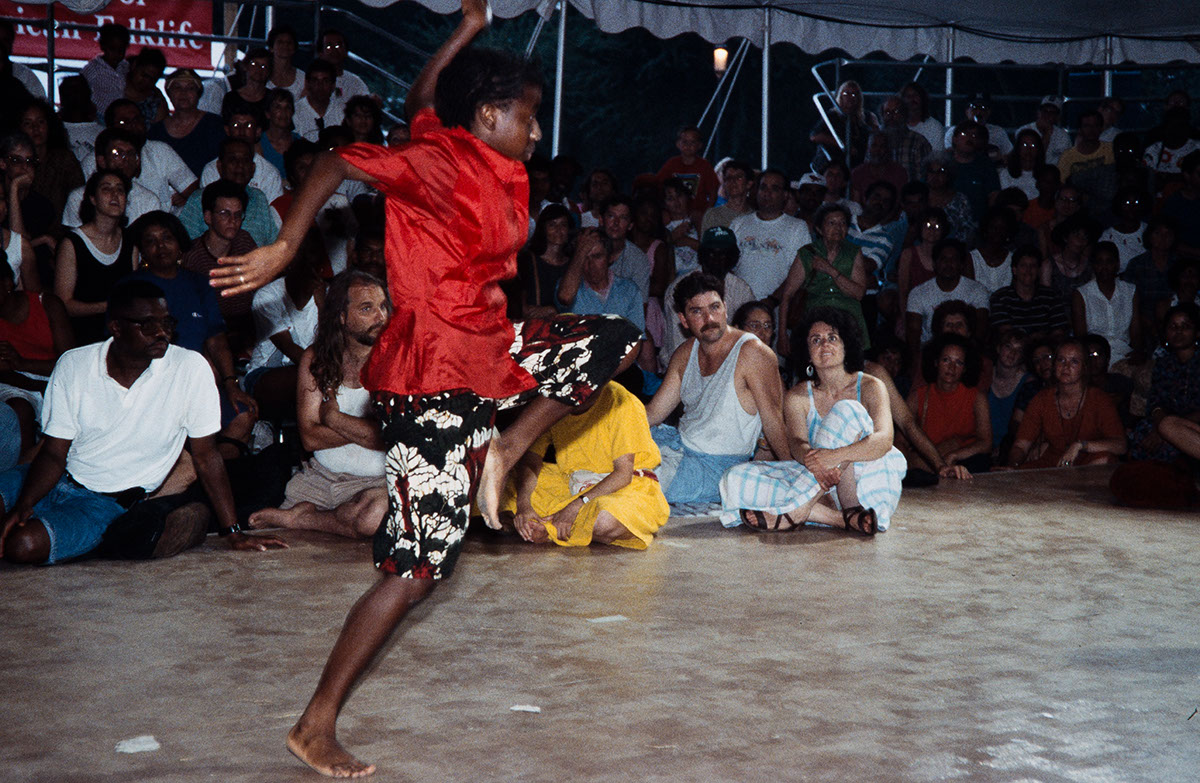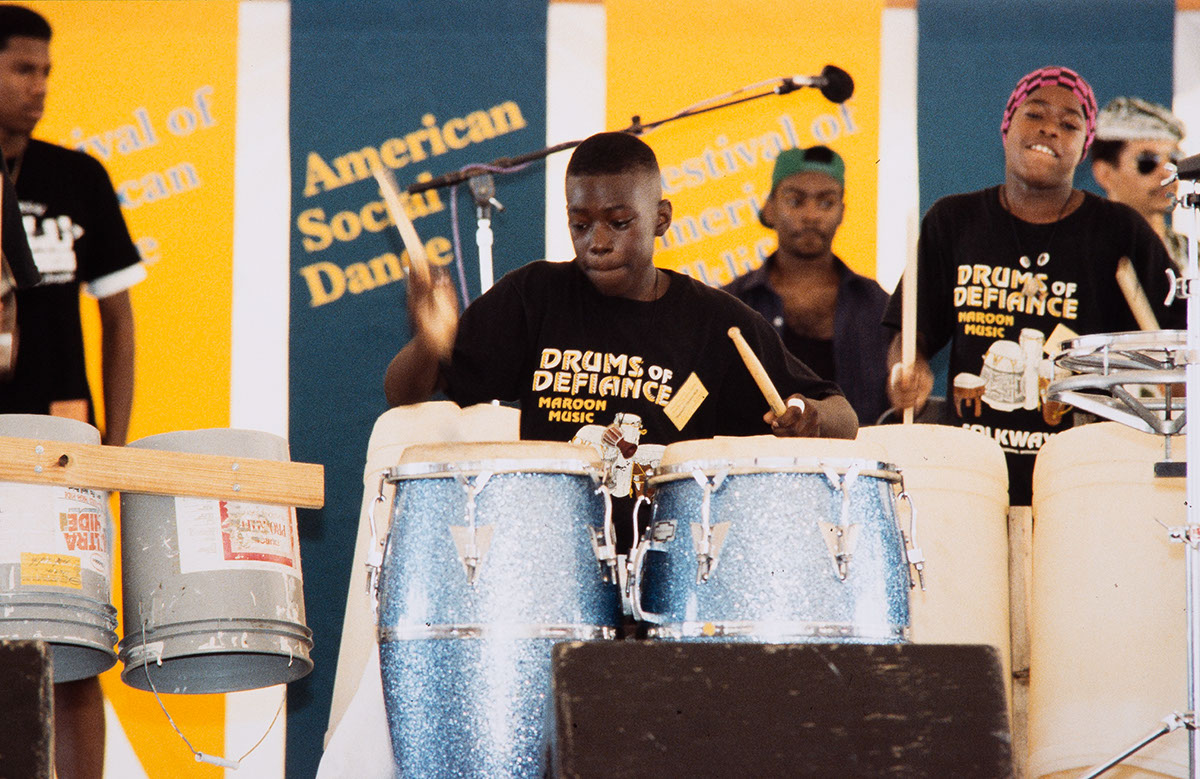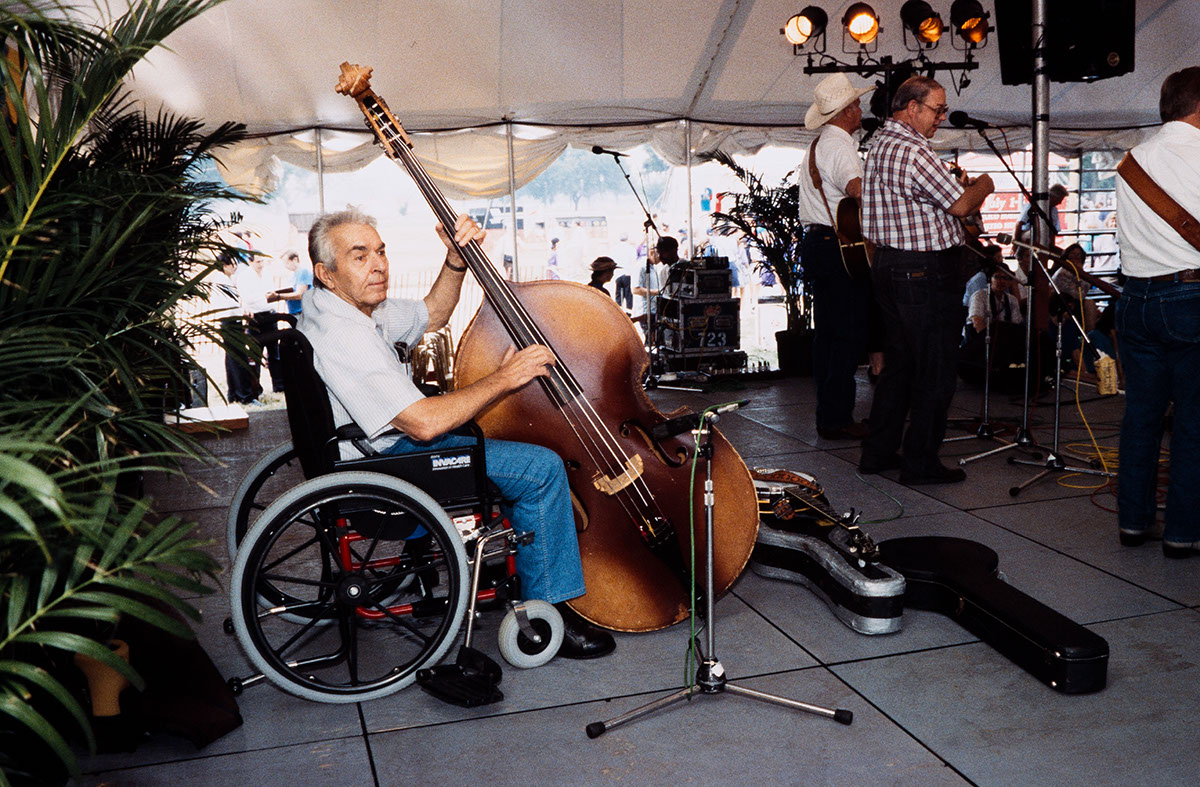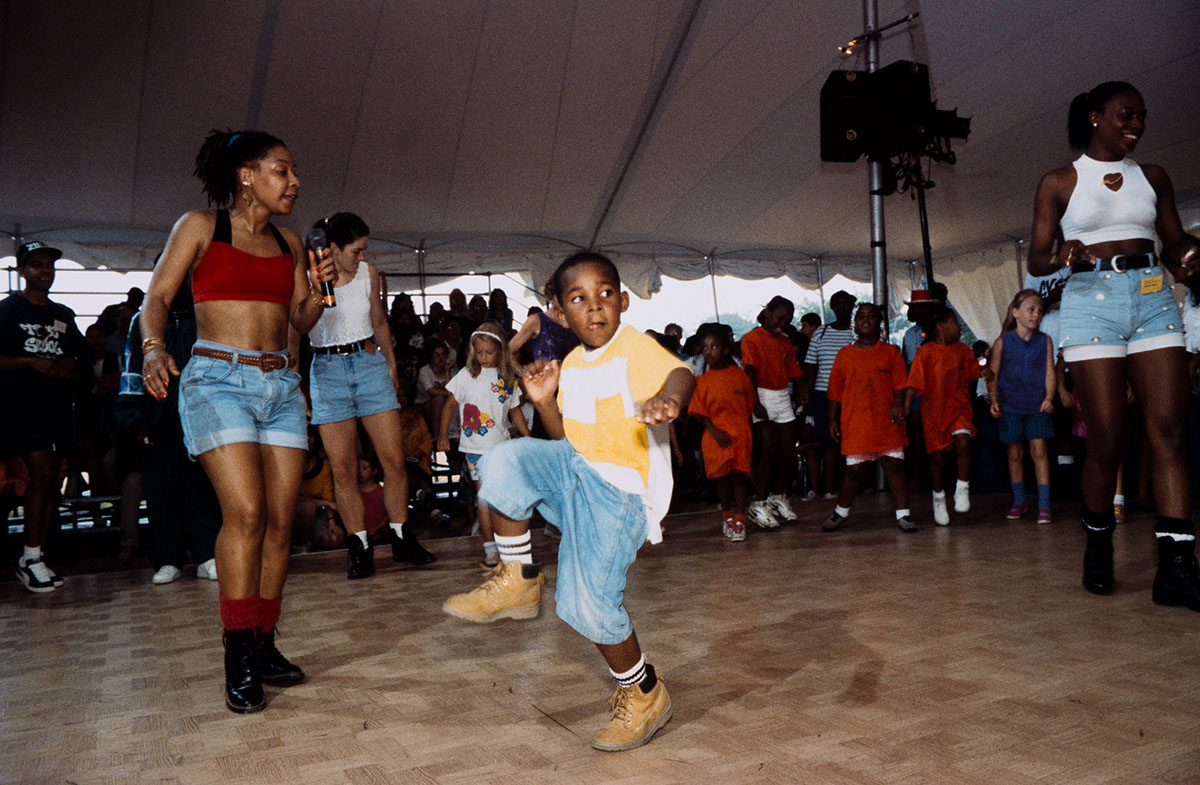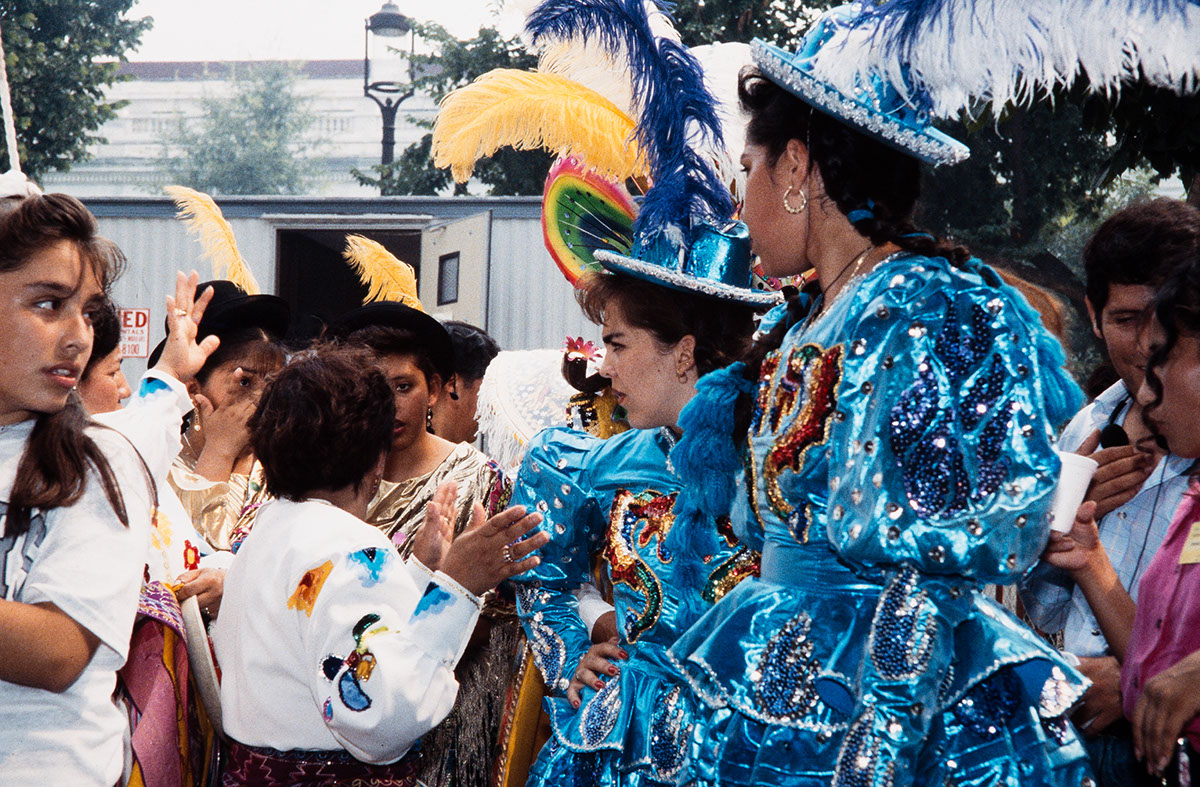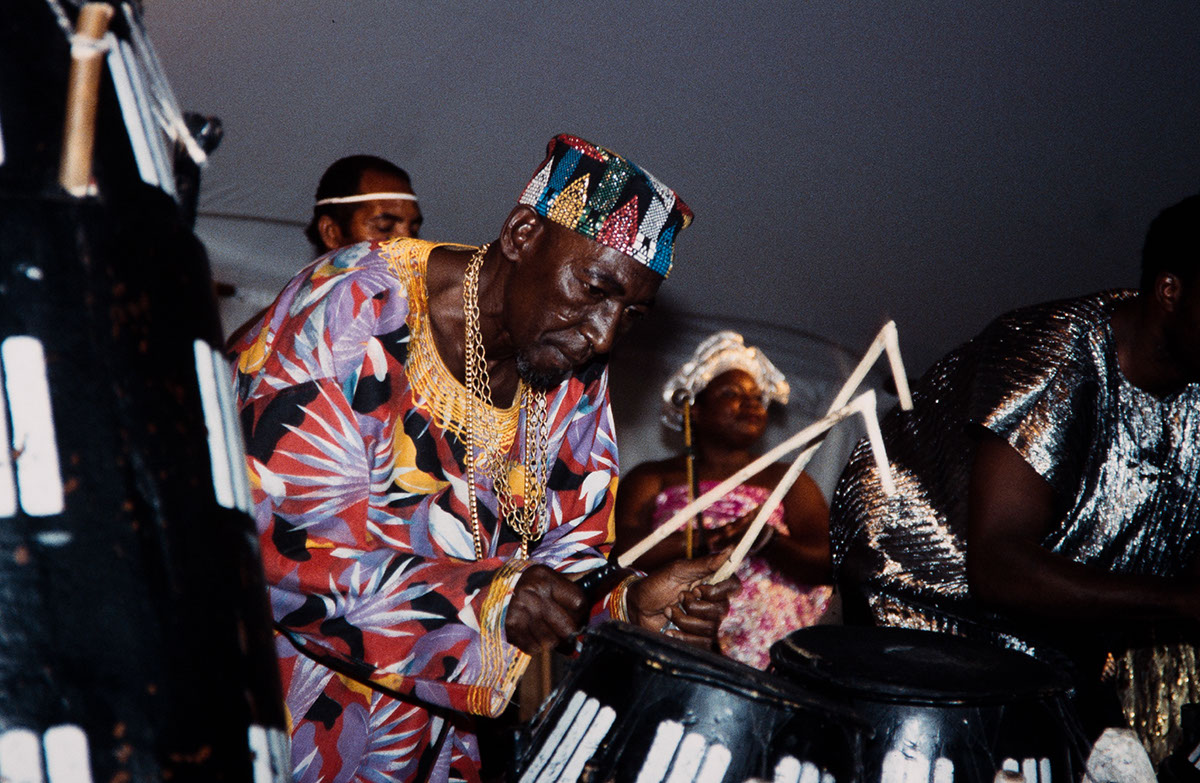The United States is blessed with a diversity of community dance traditions and new dance forms that have developed from interactions between communities. This exciting American mix has had a profound impact on the popular cultures of nations across the world. The dance program at the 1993 Festival explored social dancing traditions in five communities - an Appalachian community in southwest Virginia, Iroquois communities in upstate New York, and African American, Bolivian, and Cambodian American communities of Washington, D.C.
Tradition-bearers taught dances to Festival visitors in workshops, participated in conversations on a variety of themes, and demonstrated skills, repertoires, and performance styles from their communities. In each of these communities, dance is centrally important in the expression of cultural identity. Dancing brings members of a community together and strengthens cohesiveness by emphasizing shared ethical and aesthetic values. Performing a common vocabulary of movement, in time to a shared repertoire of music, one participates in a culture; Festival audiences became active participants during this program and had the opportunity in so doing to experience others' cultures.
Vivien Ta-Ying Chen was Curator and Marianne Hicks and Arlene Reiniger were Program Coordinators. Program Advisors included LeeEllen Friedland, Joan Frosch-Schroder, Robert Frye, Gonzalo Gutierrez, Glenn Hinson, Anthony Hovington, Adrienne Kaeppler, Martin Koenig, Ethel Raim, Denise Richards, Sally Sommer, Jane Woodside, and Vicki Risner Wulff.
American Social Dance was made possible with the support of the recording industries Music Performance Trust Funds.


